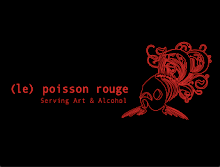
Since its formation in 2001, Novalima has been breaking down boundaries, uniting seemingly irreconcilable genres, communities and generations to create an inspiring movement that has revolutionized the music scene in their native Peru. Founded by four friends from Lima with a shared passion for both traditional Afro-Peruvian music and modern DJ culture, Novalima searches for the common ground between past and future, between tradition and innovation. Their efforts have also helped bridge the divide between the Peruvian mainstream and the Afro-Peruvian community, a minority population that has struggled against discrimination and the threat of cultural dissolution for generations.
While their sound is futuristic and cutting-edge, the roots of Novalima’s music stretch back hundreds of years to the times of slavery and Spanish colonial rule. In a far-too-familiar tale, African slaves were brought to Peru as early as the 1500s until the middle of the 19th Century, establishing an outpost of African culture in South America. Over the years, the soul and rhythms of Africa blended with the melodies and instruments of Europe and the Andes. The result is rich musical repertoire that has existed for generations on the periphery of Peruvian popular culture.
The founders of Novalima, Ramon Perez-Prieto, Grimaldo Del Solar, Rafael Morales, and Carlos Li Carrillo, became friends while in high school in Lima. The children of artists and intellectuals, Ramon, Grimaldo, Rafael and Carlos were well-educated and well traveled, and while they grew up listening to the popular and folk music of Latin America, they also shared a fascination for rock, pop, reggae, salsa, dance and electronic music.

CHICHA is the name of a corn-based liquor favored by the Incas in pre-colombian days. Chicha is also the name of a South American music craze which started out in the late 70's in the Peruvian Amazon. Cumbias amazonicas, as they were first called, were loosely inspired by Colombian accordion-driven cumbias but soon incorporated the distinctive sounds of Andean melodies, some Cuban son, and the psychedelic sounds of surf guitars, farfisa organs and moog synthesizers. The group draws its personnel from barbes regulars Bebe Eiffel, One Ring Zero and Las Rubias del norte.
More information here.




No comments:
Post a Comment